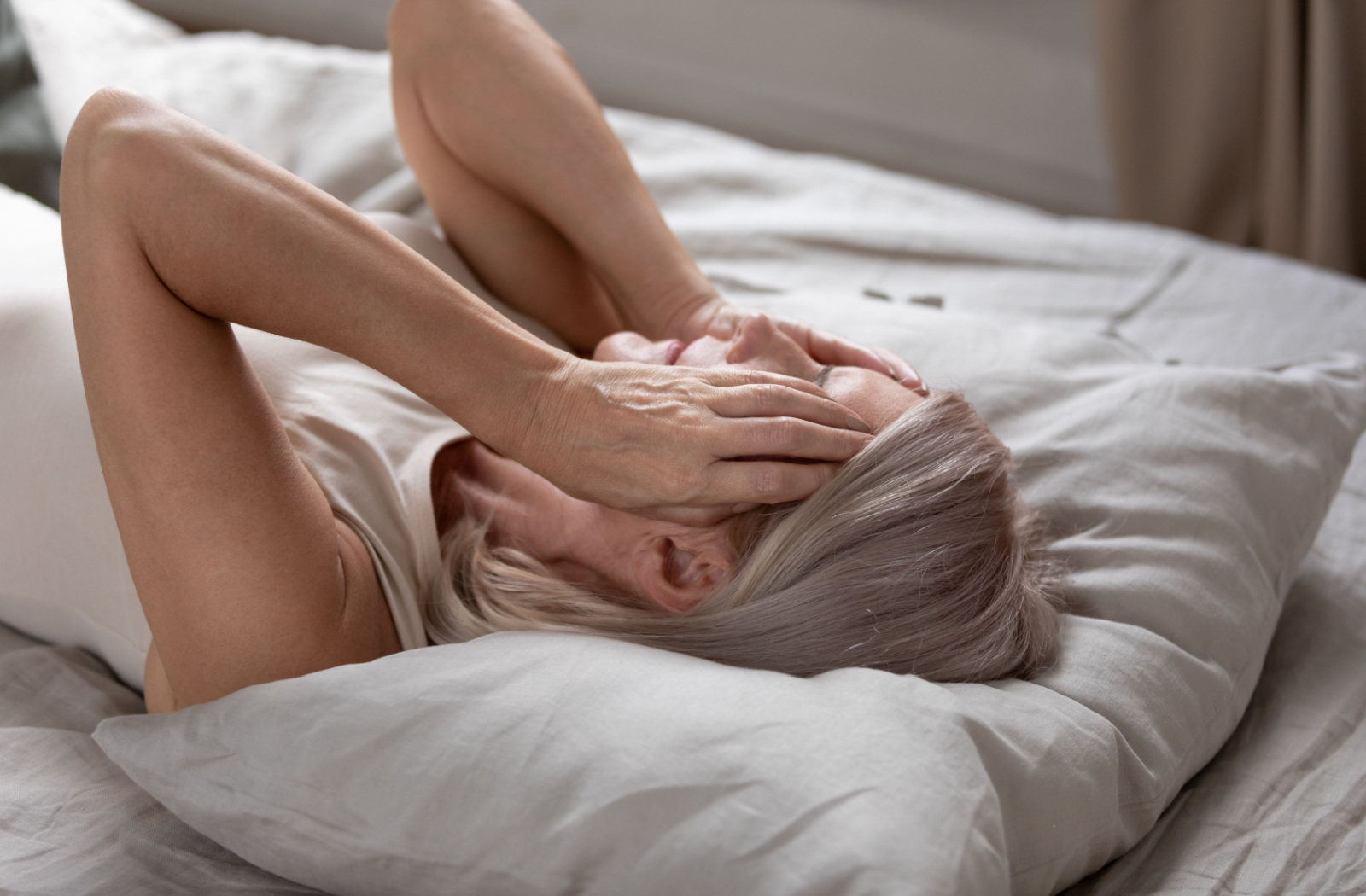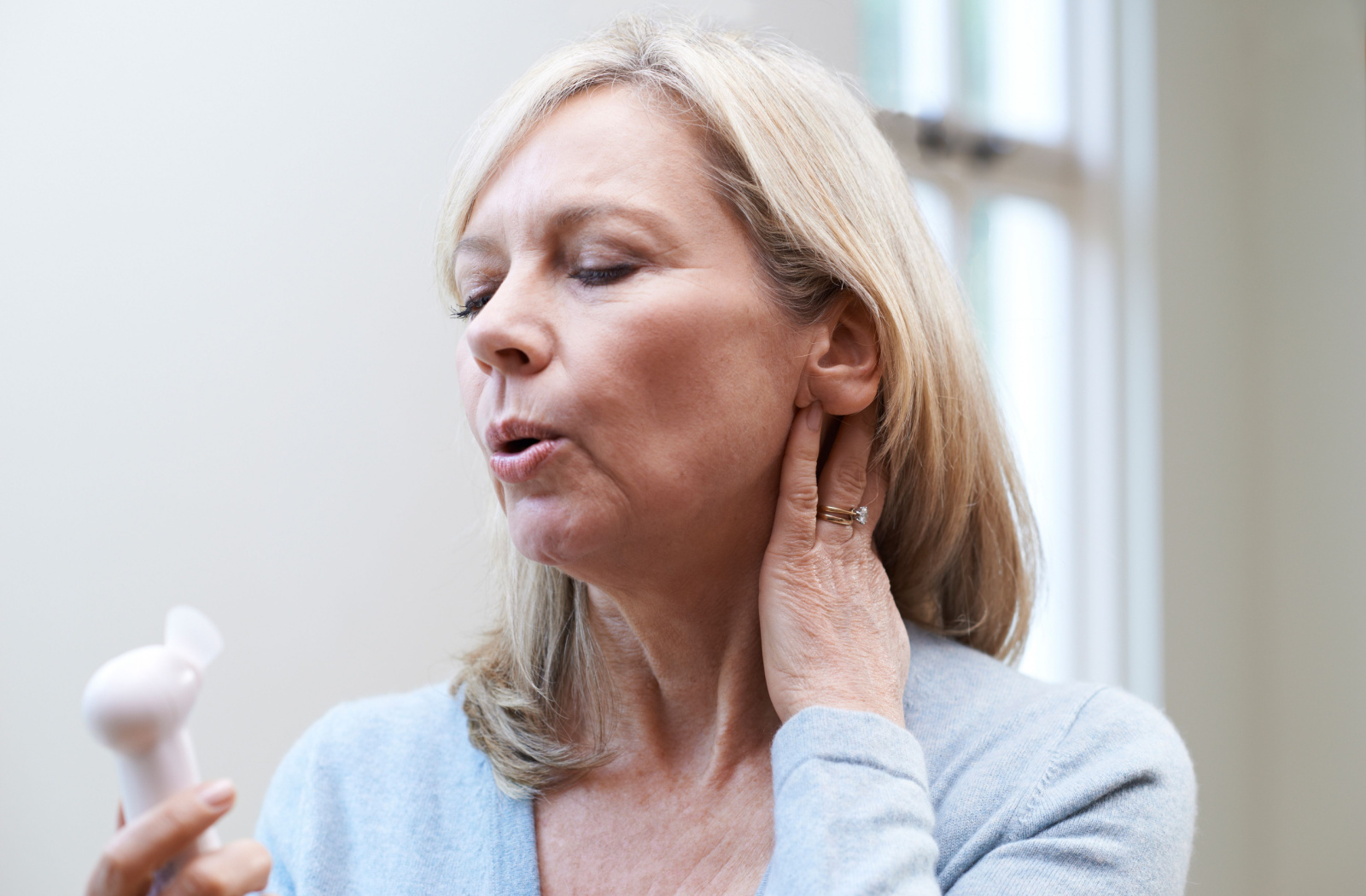The period before menopause and the transition itself can cause changes in both your body and mind. These changes can have an impact on your mental health, affecting how you feel and think.
By opting for an assisted living community that provides dedicated care and support specifically tailored for women experiencing menopause and other hormonal changes, we can help reduce the disruptions it may bring to your life.
The Stronger Living program at All American Assisted Living at Coram is a complimentary program that offers completely customized support for personal health needs. You also have the opportunity to get extra help from any of our team members. Your All American Assisted Living at Coram healthcare team comprises a full-time wellness director, an exercise physiologist, an occupational therapist, a physical therapist, and a speech therapist. You will have access to all of these therapists and any other resources we can get to help you through this challenging time.
Definition of Menopause
Menopause is a stage in a woman’s life when her ovaries cease producing hormones and her menstrual periods stop. While typical onset is in your early 50s, menopause can begin at any time, and perimenopause can occur as early as mid-30s. Menopause is officially recognized when a woman has gone without a period for 12 consecutive months.
As you enter perimenopause, the levels of estrogen and progesterone in your body start to decrease. Once you reach menopause, these hormone levels can stabilize, but by this point, the fluctuation can lead to various challenges, including:
- Hot flashes
- Vaginal issues like dryness
- Sleeping problems
- Life-altering memory issues
Many women also experience depression during this time, with those who have struggled with anxiety and depression in the past at risk for a resurgence of symptoms.
Perimenopause can also impact various aspects of your life, including:
- Relationships
- Sleep
- Weight
Menopause is something nearly all women go through, and it can be a frustrating natural condition that can severely impact mental health.
Physical Changes During Menopause
Hormonal Changes
Menopause is a complex stage that often comes with mood swings. Mood swings can be attributed to the low levels of estrogen in the body, which leads to feelings of irritability, anxiety, and depression. The fluctuation of moods can be rapid, with one moment containing laughter followed by tears.
Research has shown that estrogen has a mood-enhancing effect, and its reduced levels during menopause can increase the risk of depression.
Studies have suggested that women going through menopause may be 2 to 4 times more likely to experience a major depressive episode compared to other stages of life.
Apart from the increased risk of depression, it’s important to note that menopause can worsen pre-existing mental health conditions such as bipolar disorder and schizophrenia. Women who have these conditions should be aware of this potential impact during perimenopause.
Maintaining a healthy lifestyle, seeking professional help, and having a support system in place can help alleviate some of the mental health challenges that come with menopause.
Body Changes
In addition to hormonal changes, sleep deprivation can also significantly impact mood during menopause. Disruptive symptoms such as night sweats, hot flashes, and heart palpitations can lead to poor quality sleep, resulting in irritability, anxiety, and crankiness during the day.
Coping with these symptoms requires prioritizing self-care and seeking support from loved ones. Maintaining a regular diet and exercise routine is essential, as these habits have been shown to significantly alleviate menopausal symptoms. By taking care of yourself, it’s possible to navigate this challenging time with resilience.

Coping Strategies for Mental Health Changes
Healthy Lifestyle Changes
The same hormones that control your menstrual cycle also influence serotonin, a brain chemical that promotes feelings of well-being and happiness. When hormone levels drop, serotonin levels also fall, increasing seemingly irrational emotions such as irritability, anxiety, and sadness.
However, incorporating exercise, healthy eating, and adequate sleep can help you cope through moments of intense emotions.
Therapeutic Approaches
Non-hormonal therapies include cognitive behavioral therapy (CBT), which can help women manage the emotional and psychological aspects of menopause. Therapists can teach mindfulness-based stress reduction to help reduce stress and promote relaxation.
Some women also find relief through alternative therapies like acupuncture, herbal supplements, and yoga. Ultimately, the best therapeutic approach for menopause depends on your personal needs and preferences.
You can work closely with a healthcare provider to determine the most effective treatment plan that fits your lifestyle. With the right approach, you can manage the symptoms of menopause and enjoy a healthy, fulfilling life with the support of family and friends, as well as your care team and health support.
Discover How All American Assisted Living at Coram Can Help
Don’t hesitate to reach out for professional help if you need it. Share your situation with someone you trust, and you’ll likely find someone willing to lend an ear and talk things through.
Our staff at All American Assisted Living in Coram is used to helping our residents through menopausal changes and is able to discuss the wide range of healthy living and exercise activities that help reduce symptoms.All of our team members are empathetic, patient, and willing to work with you every step of the way. Contact us to take a tour of our community, and see how our modern assisted living community helps our residents foster their emotional, mental, and physical wellness.



